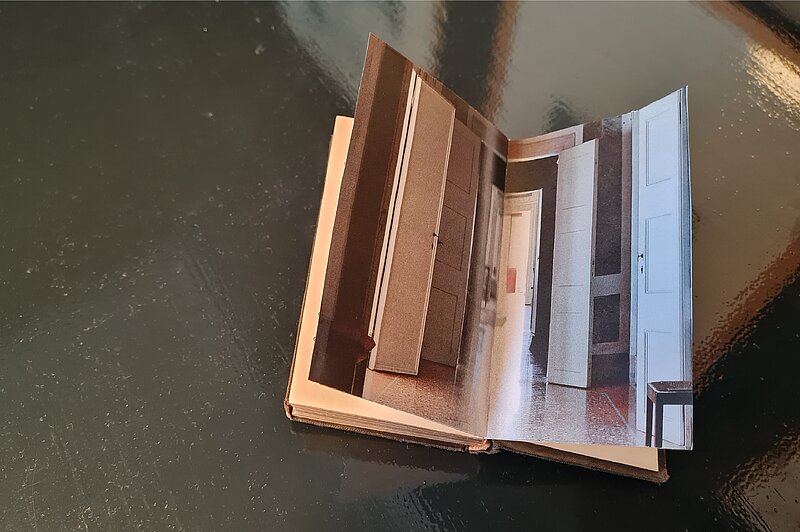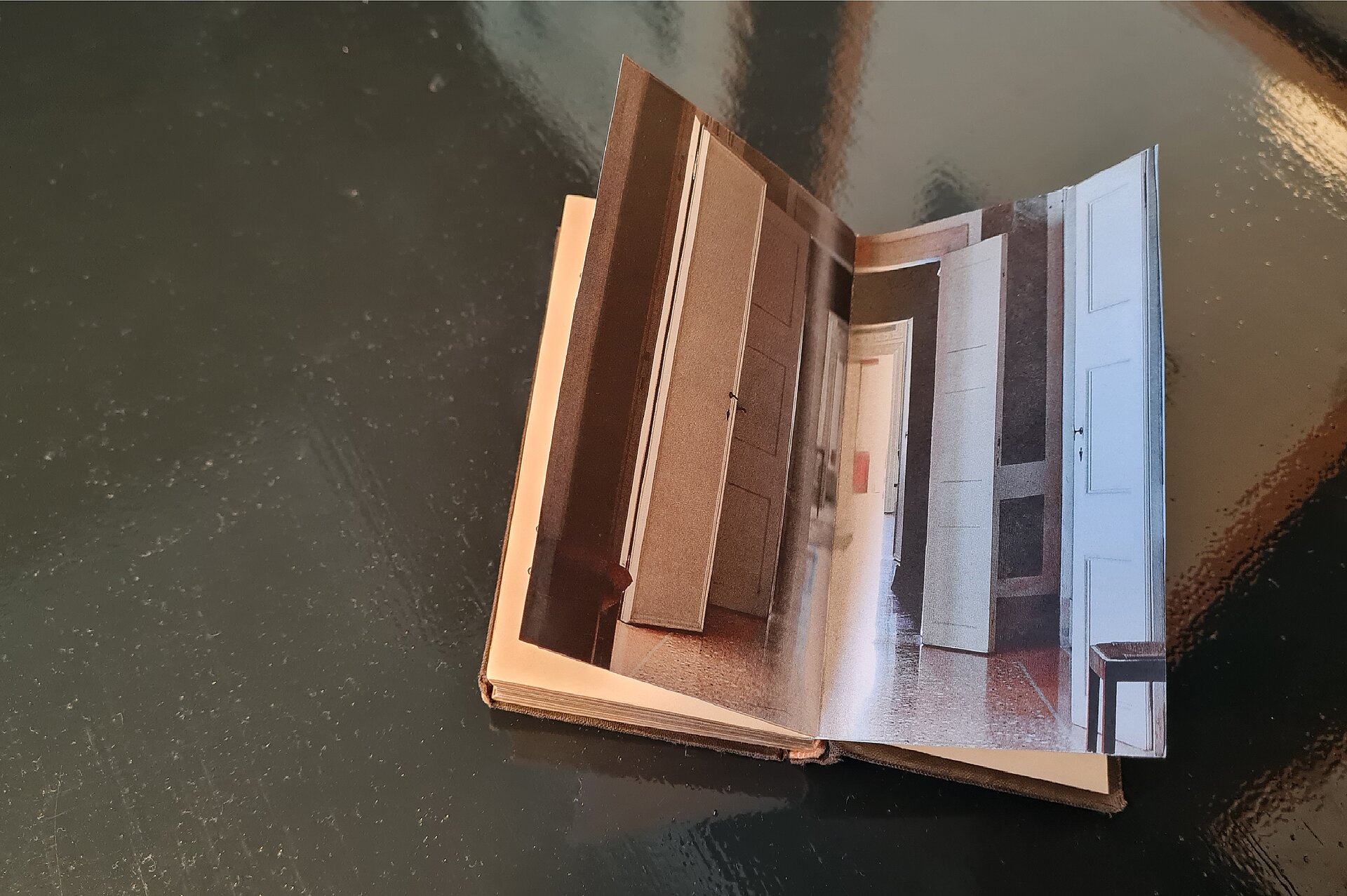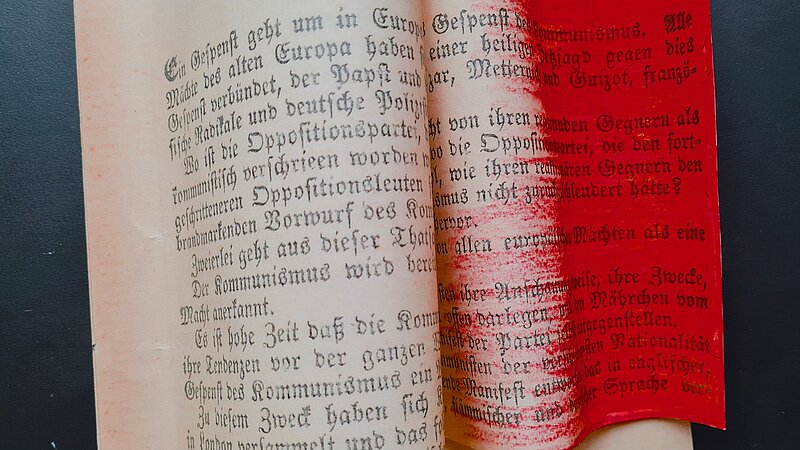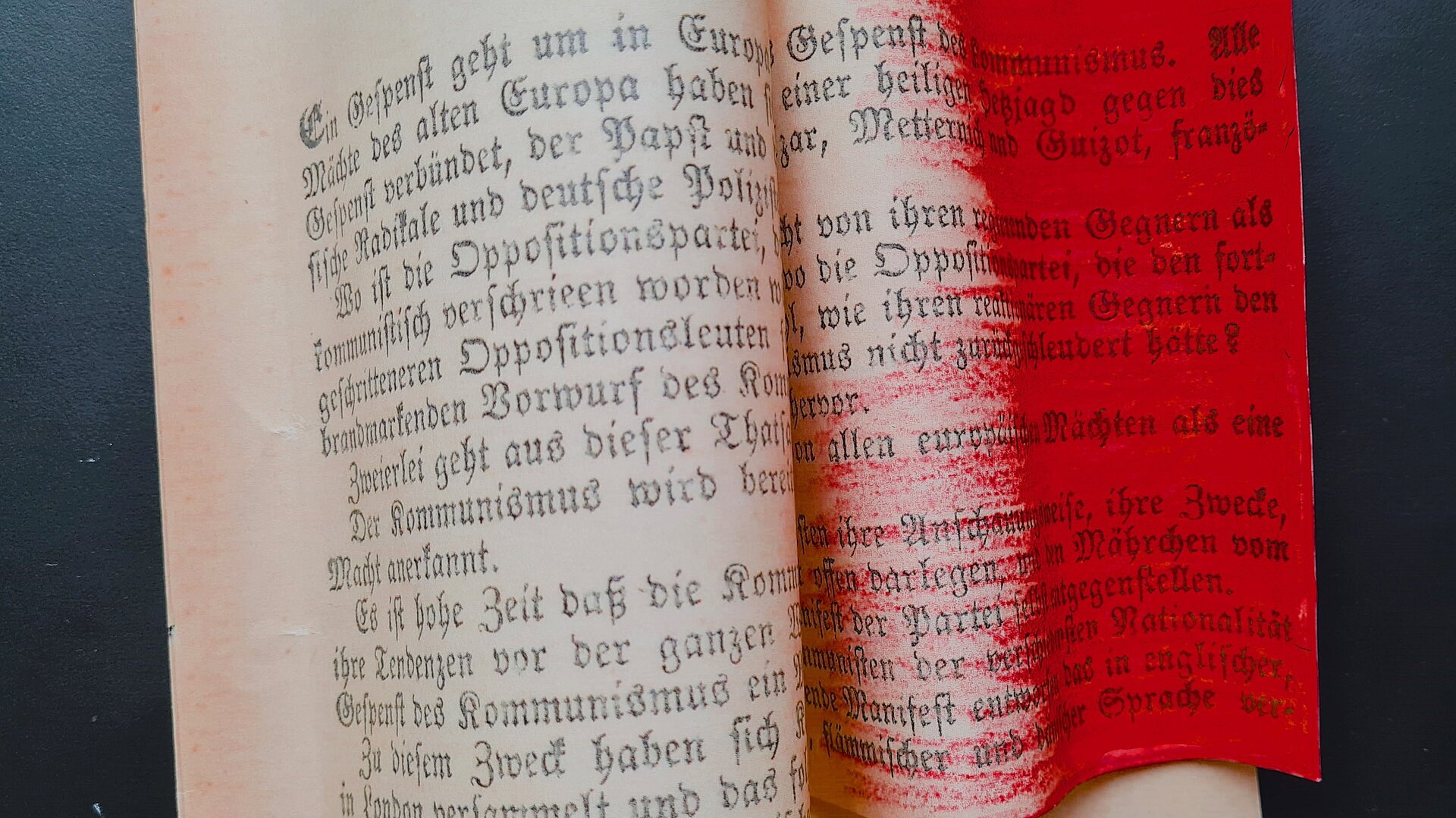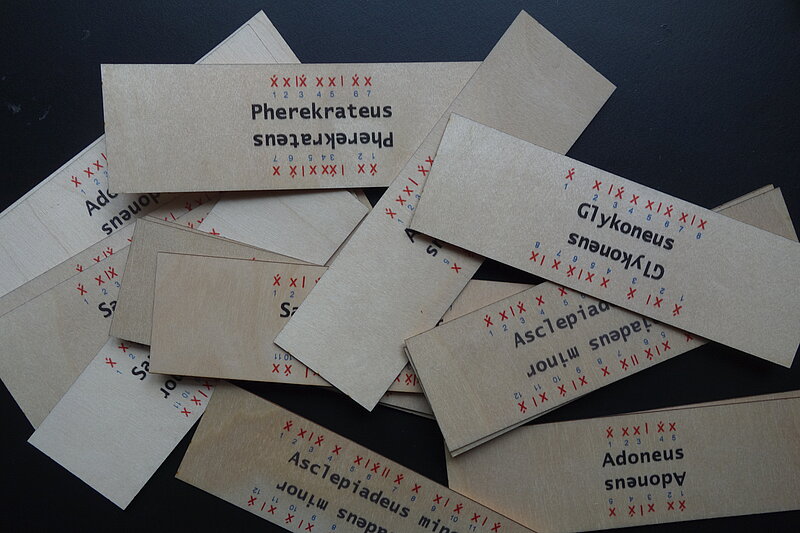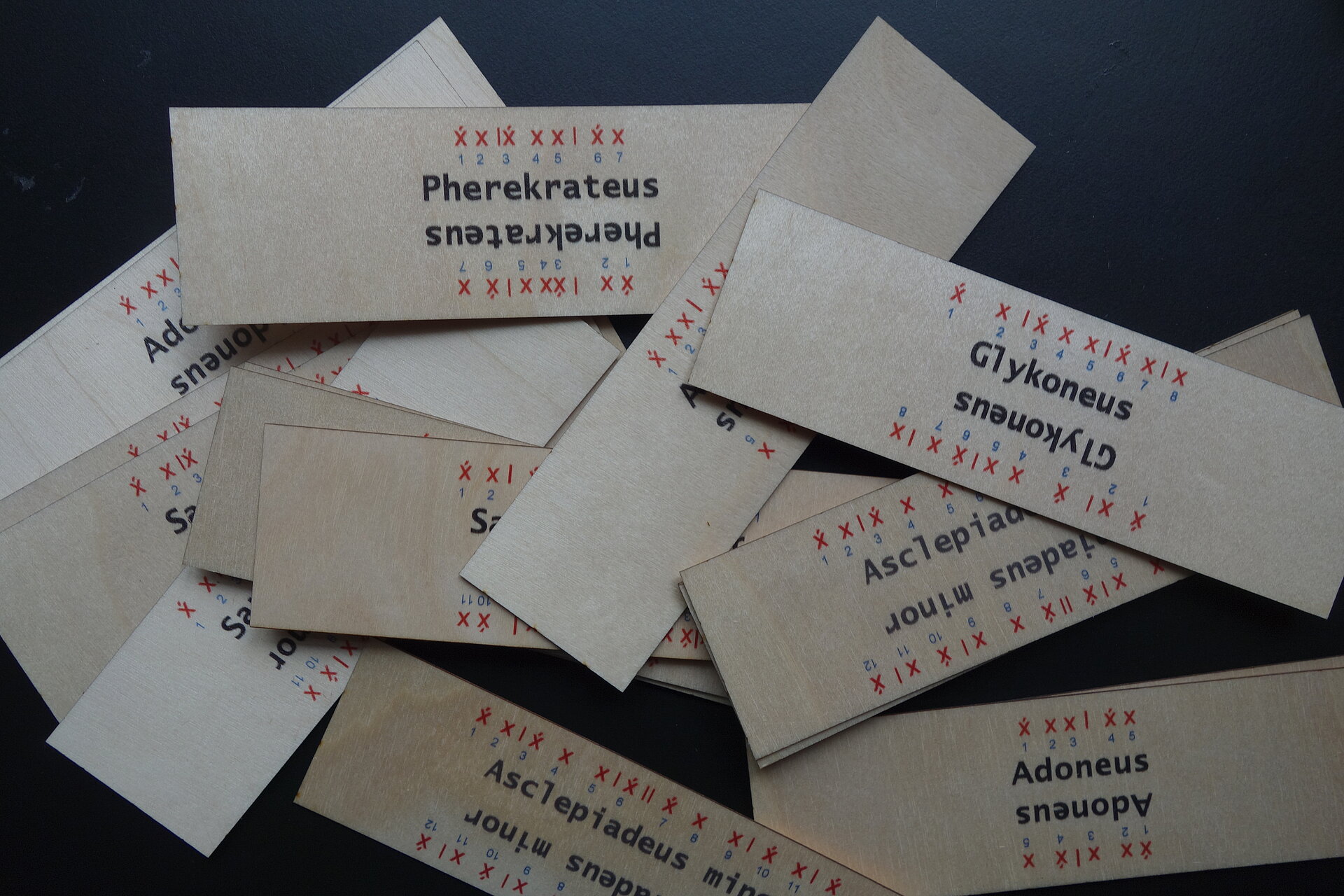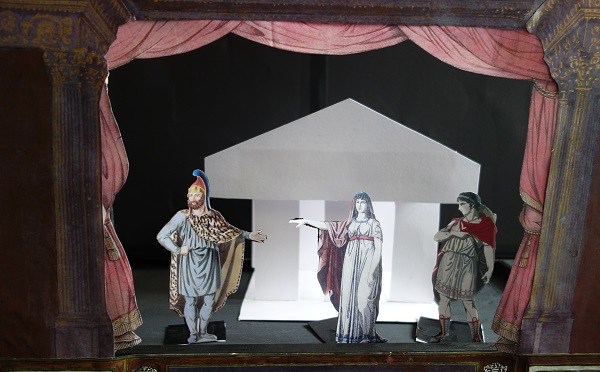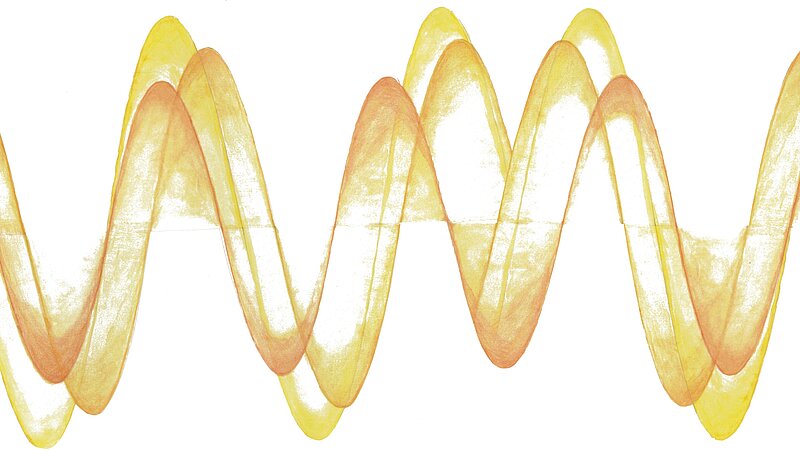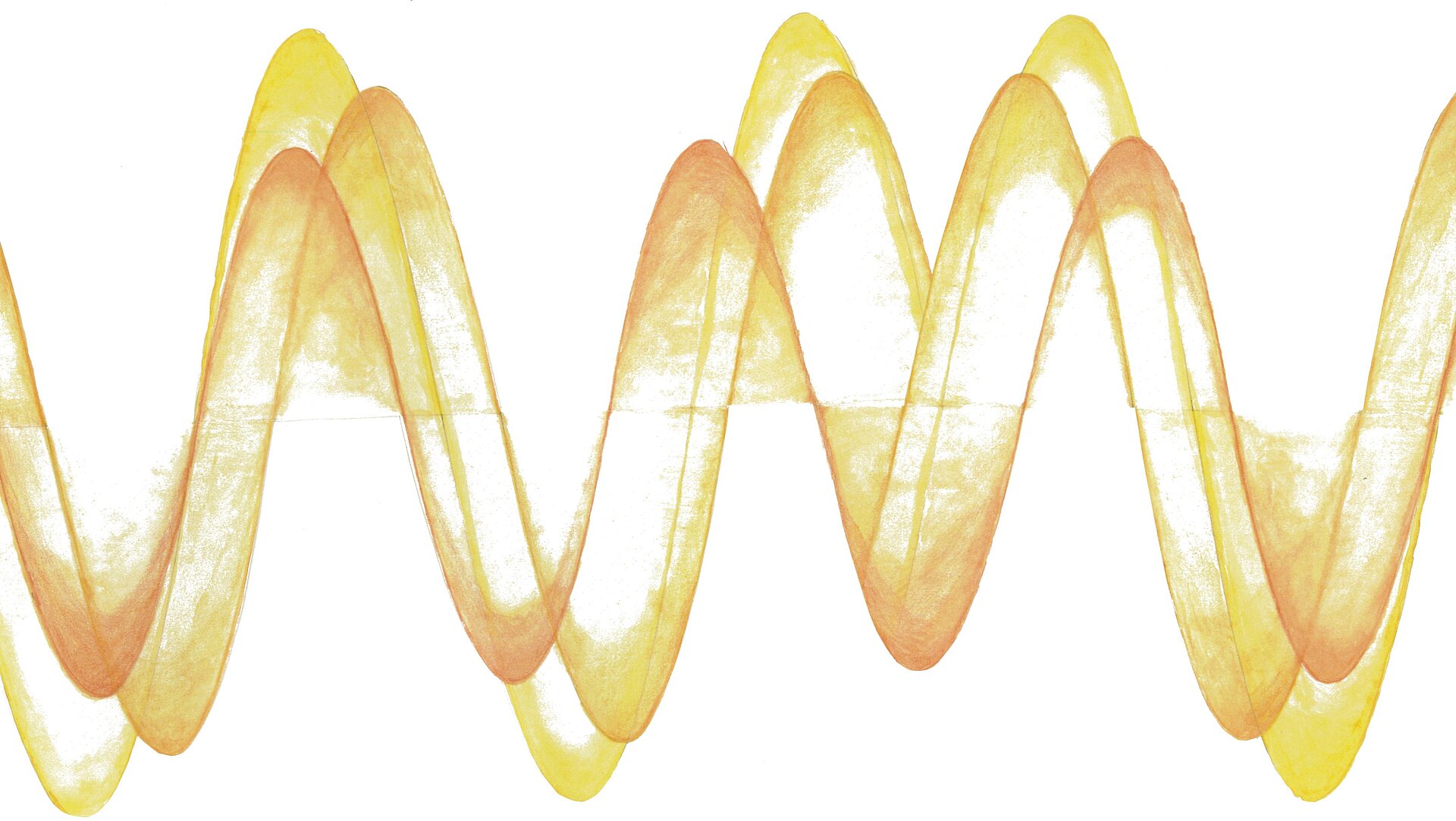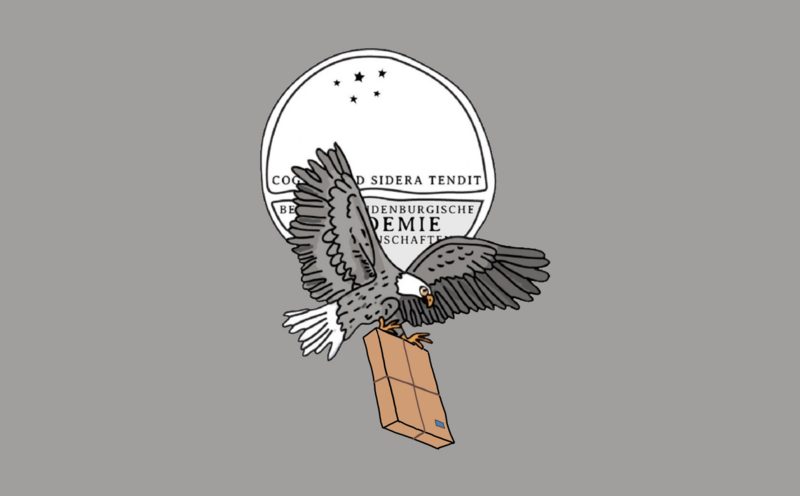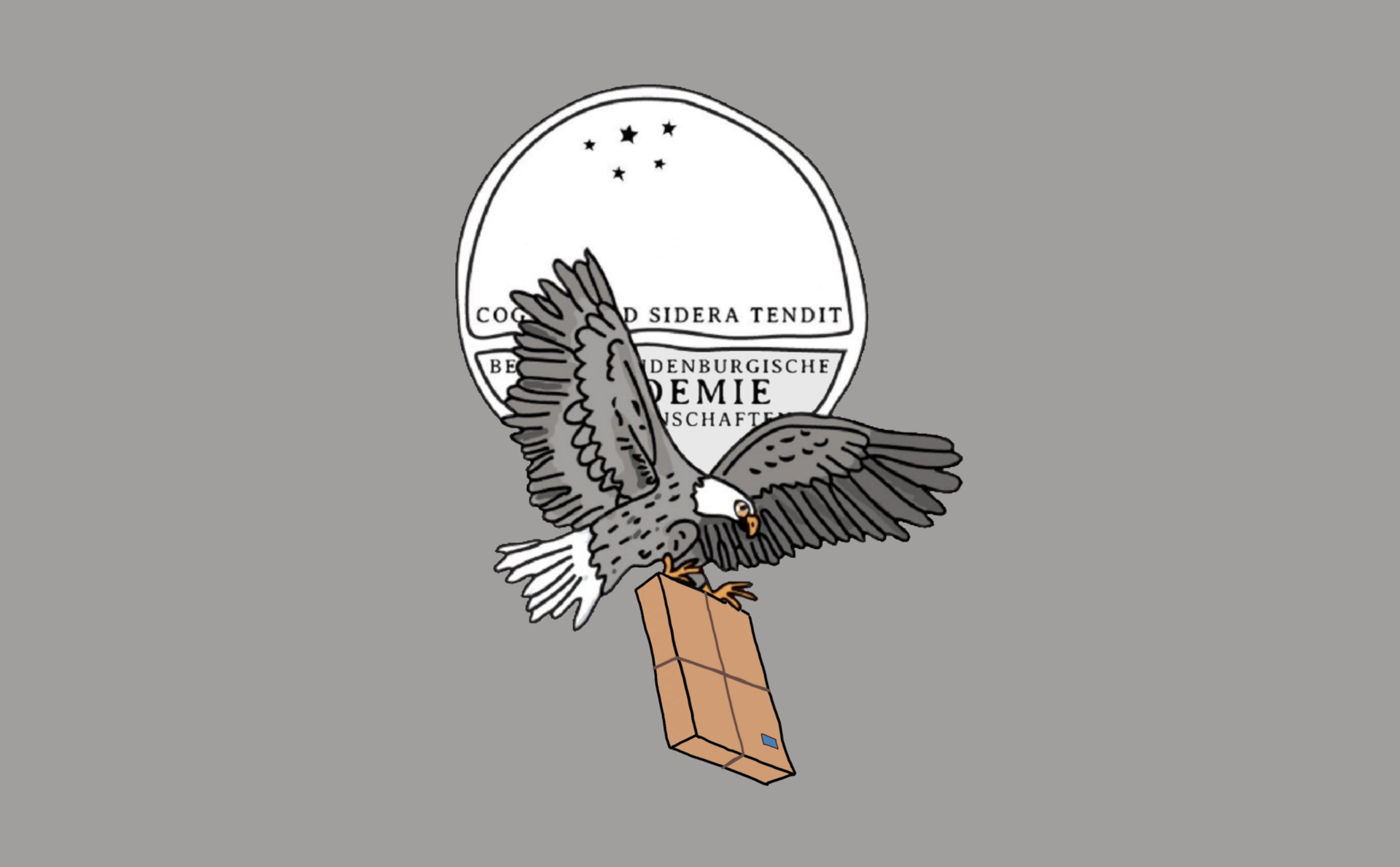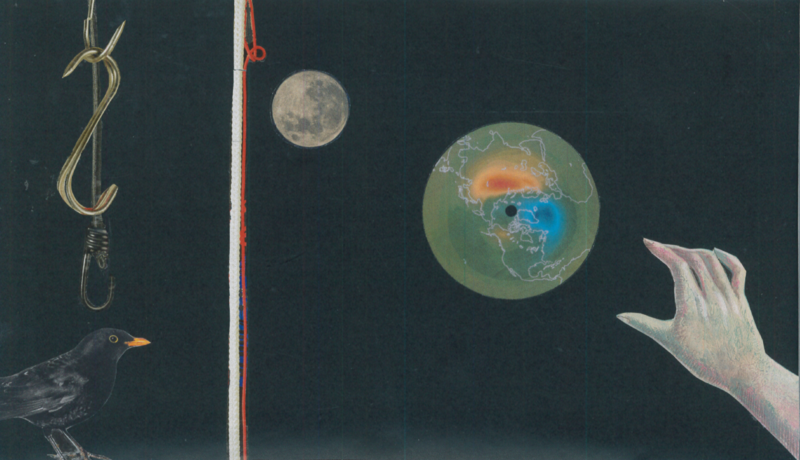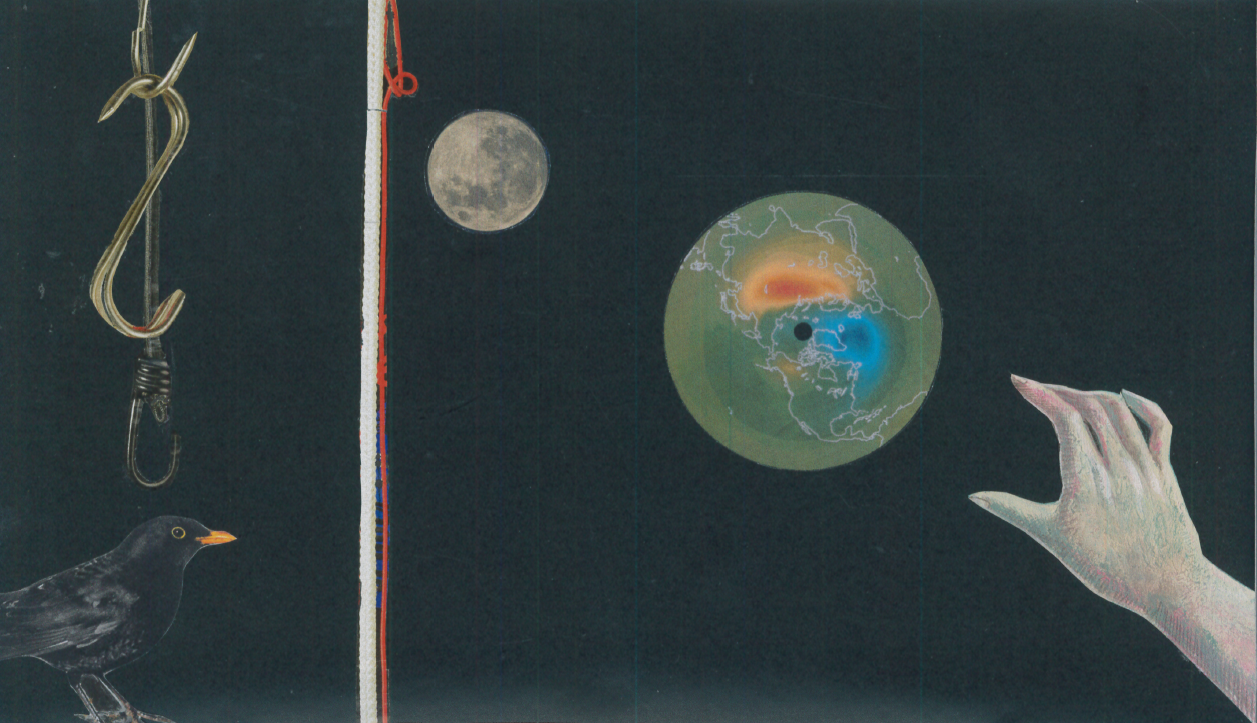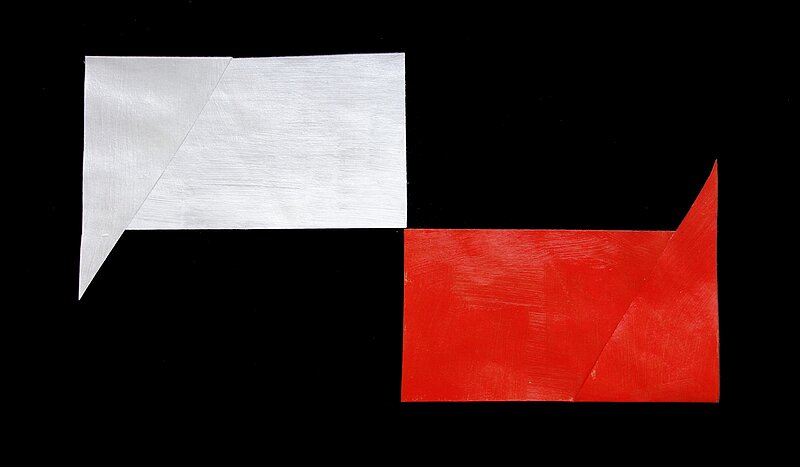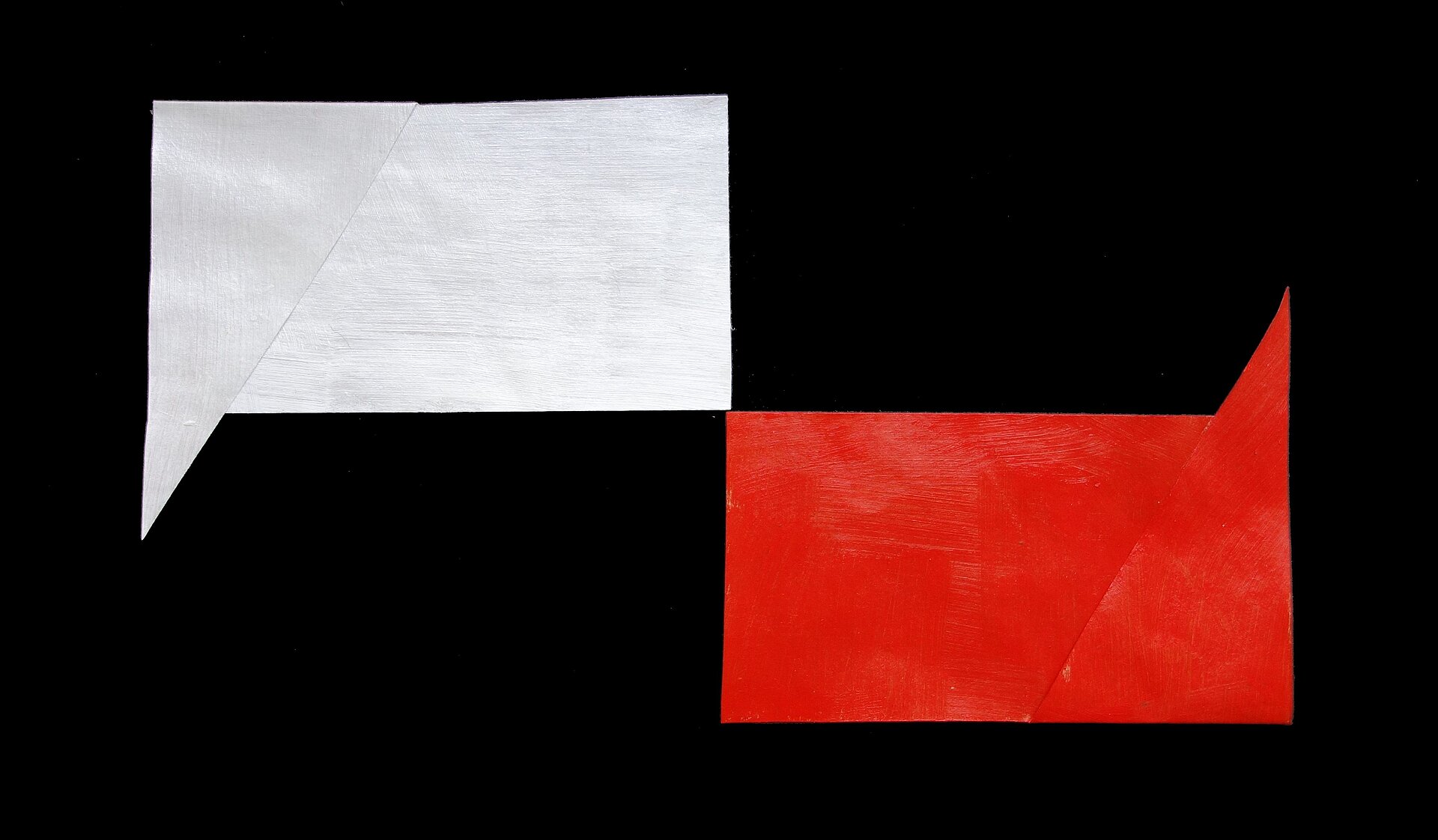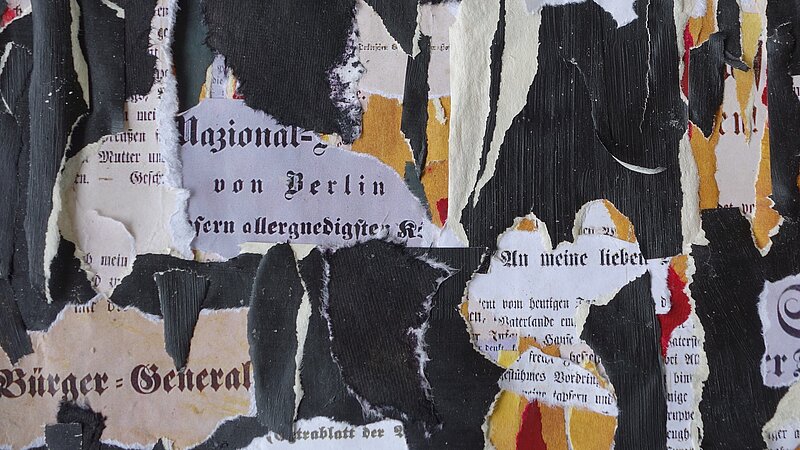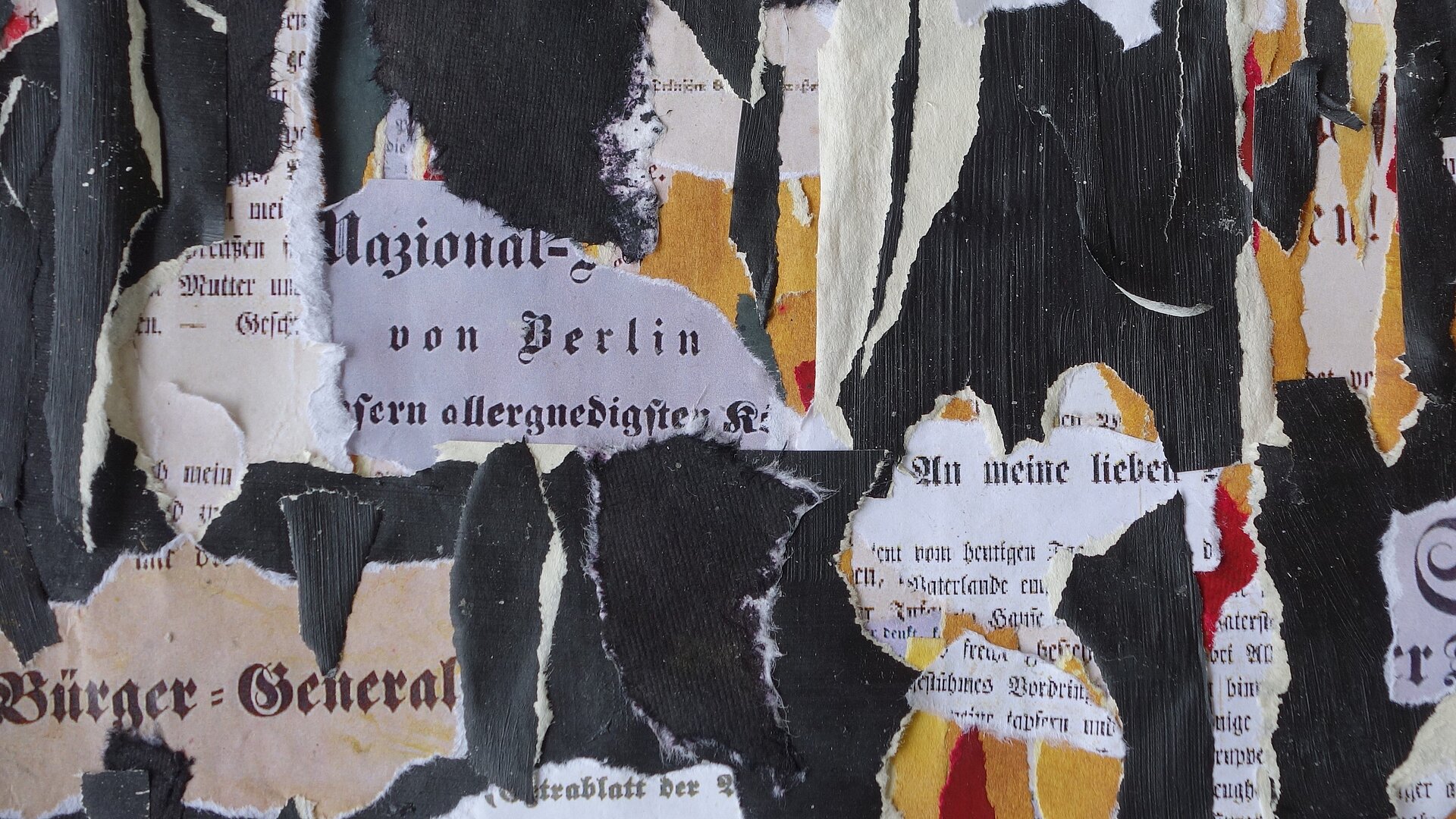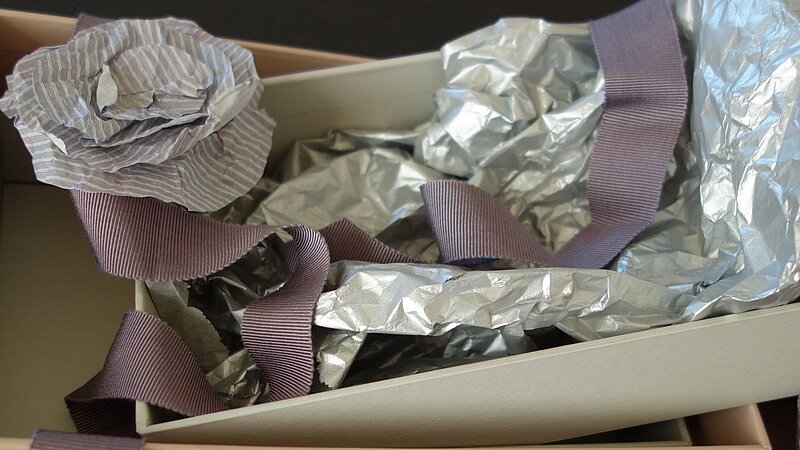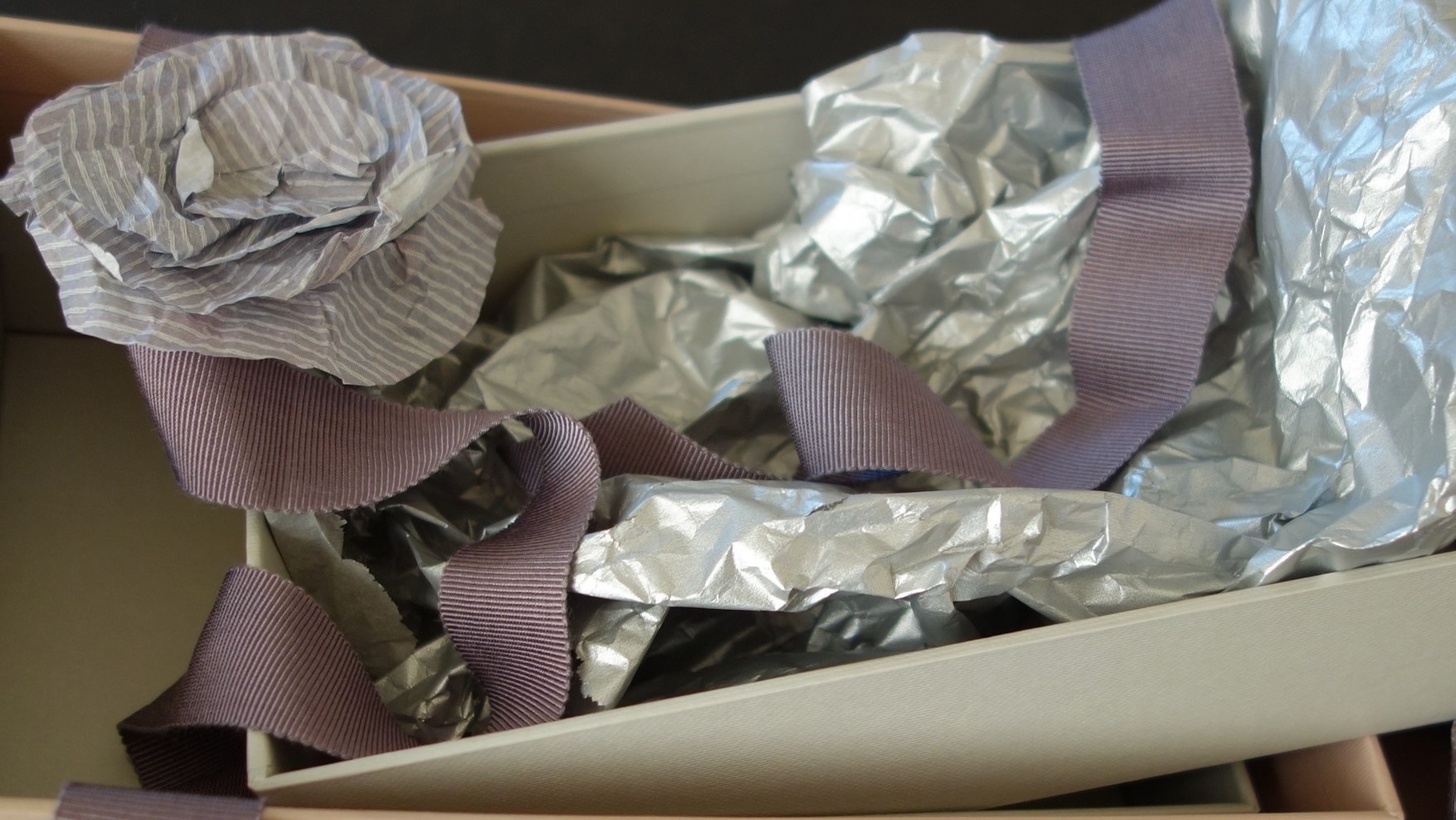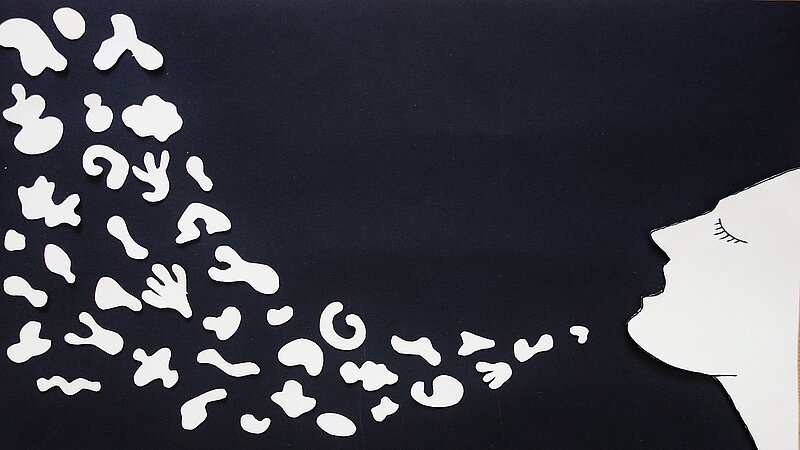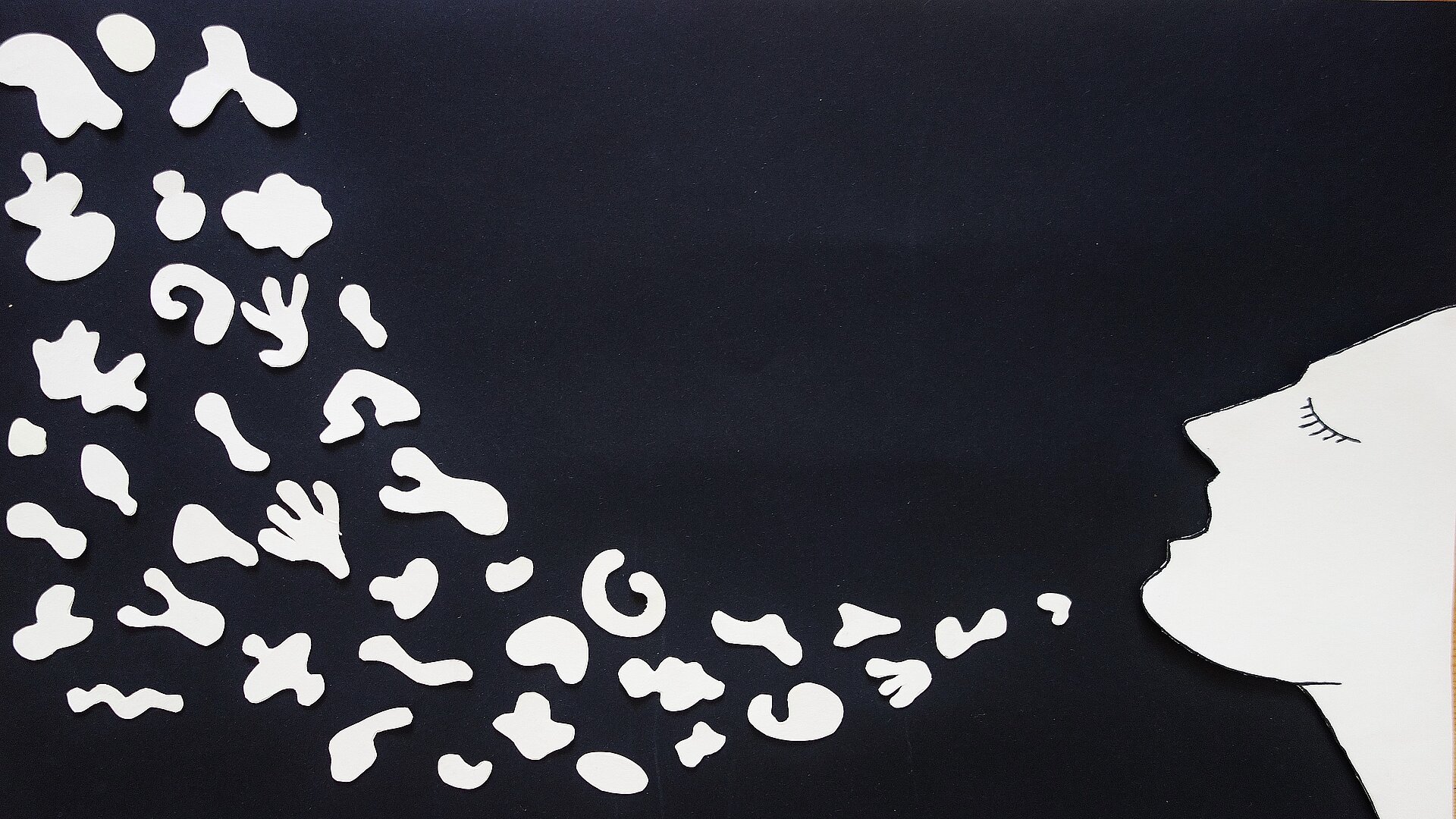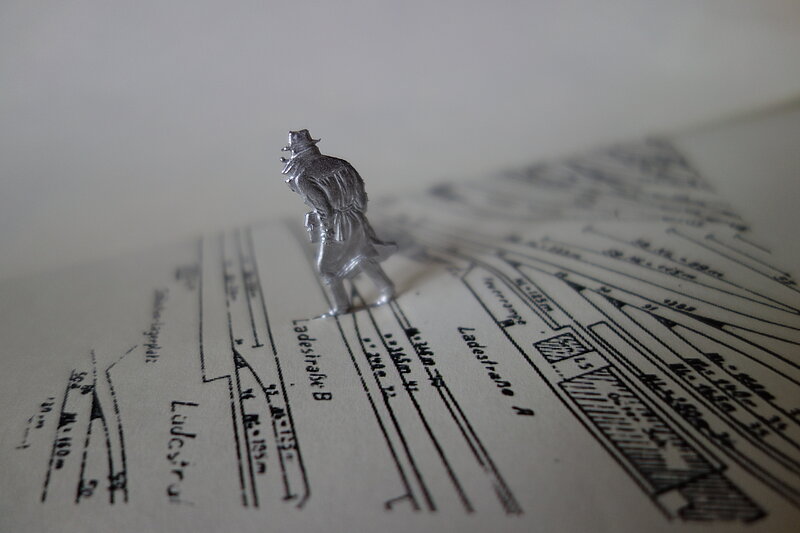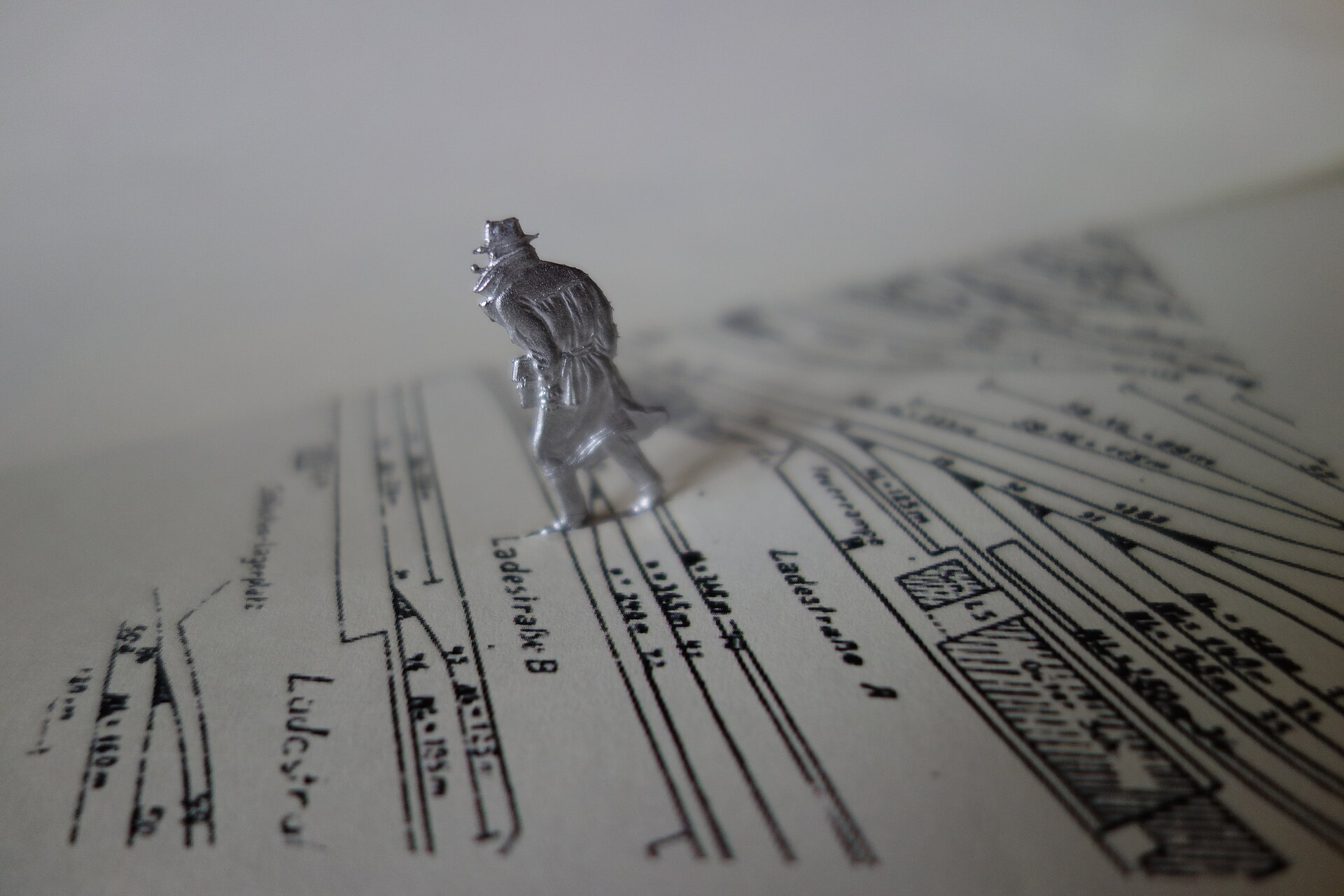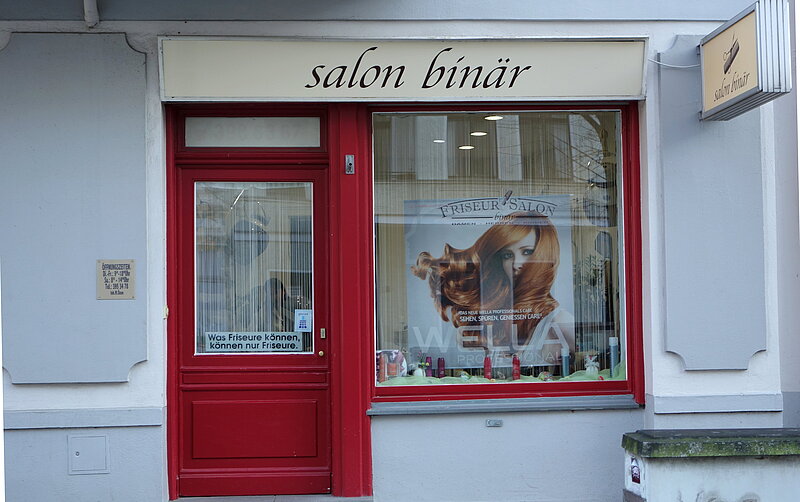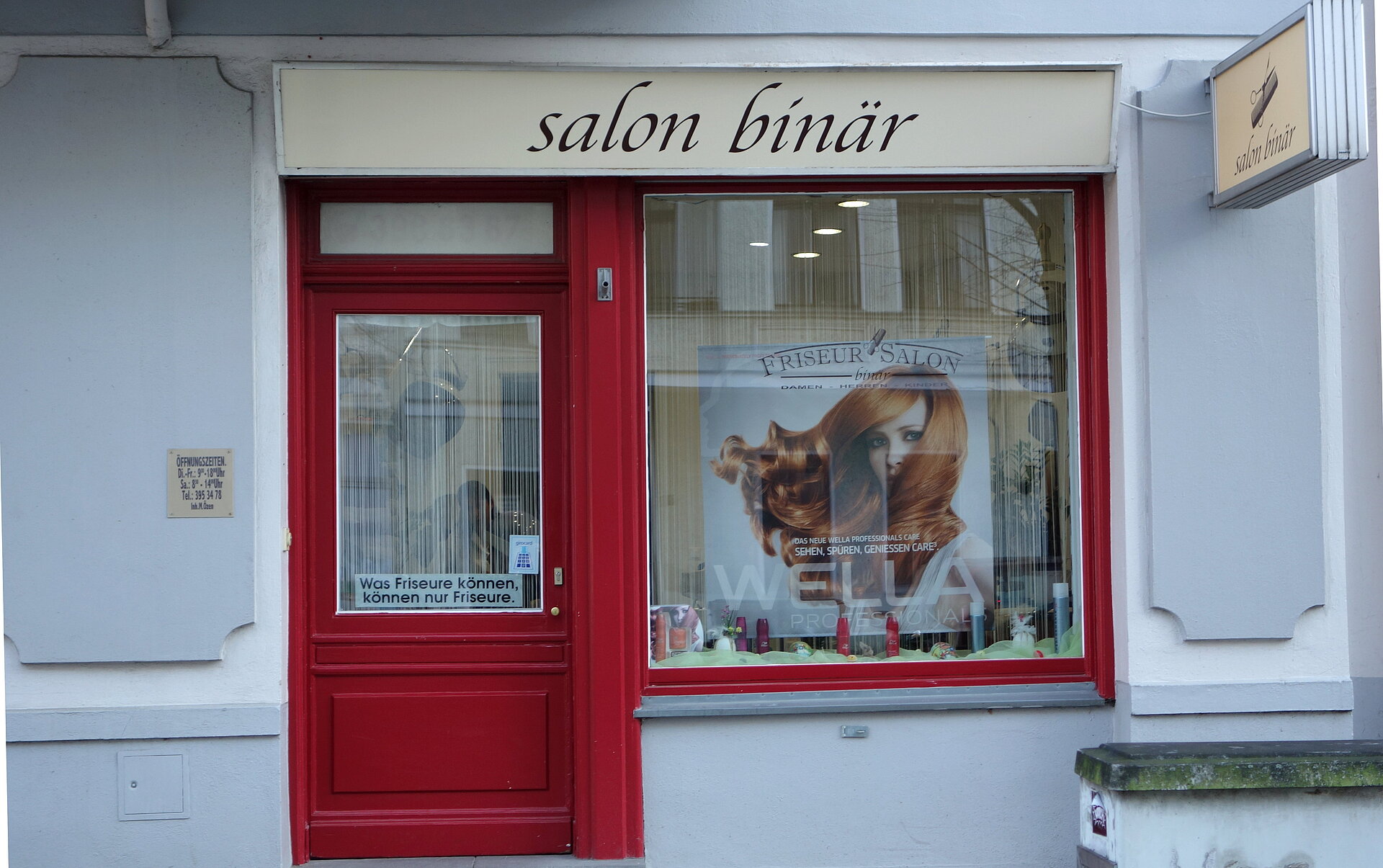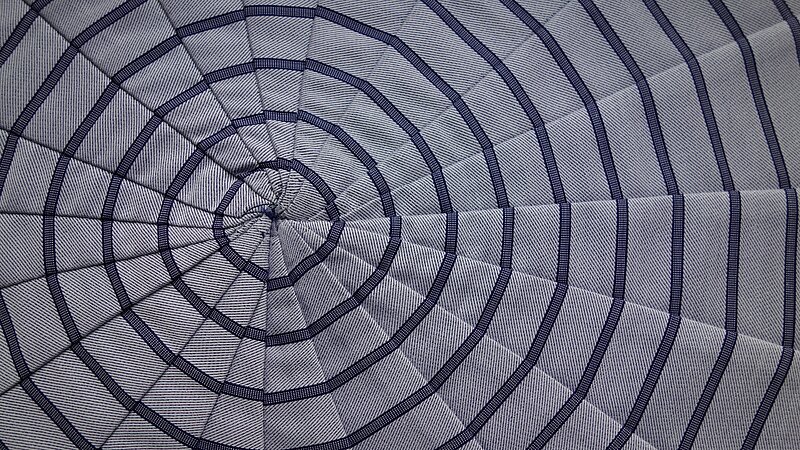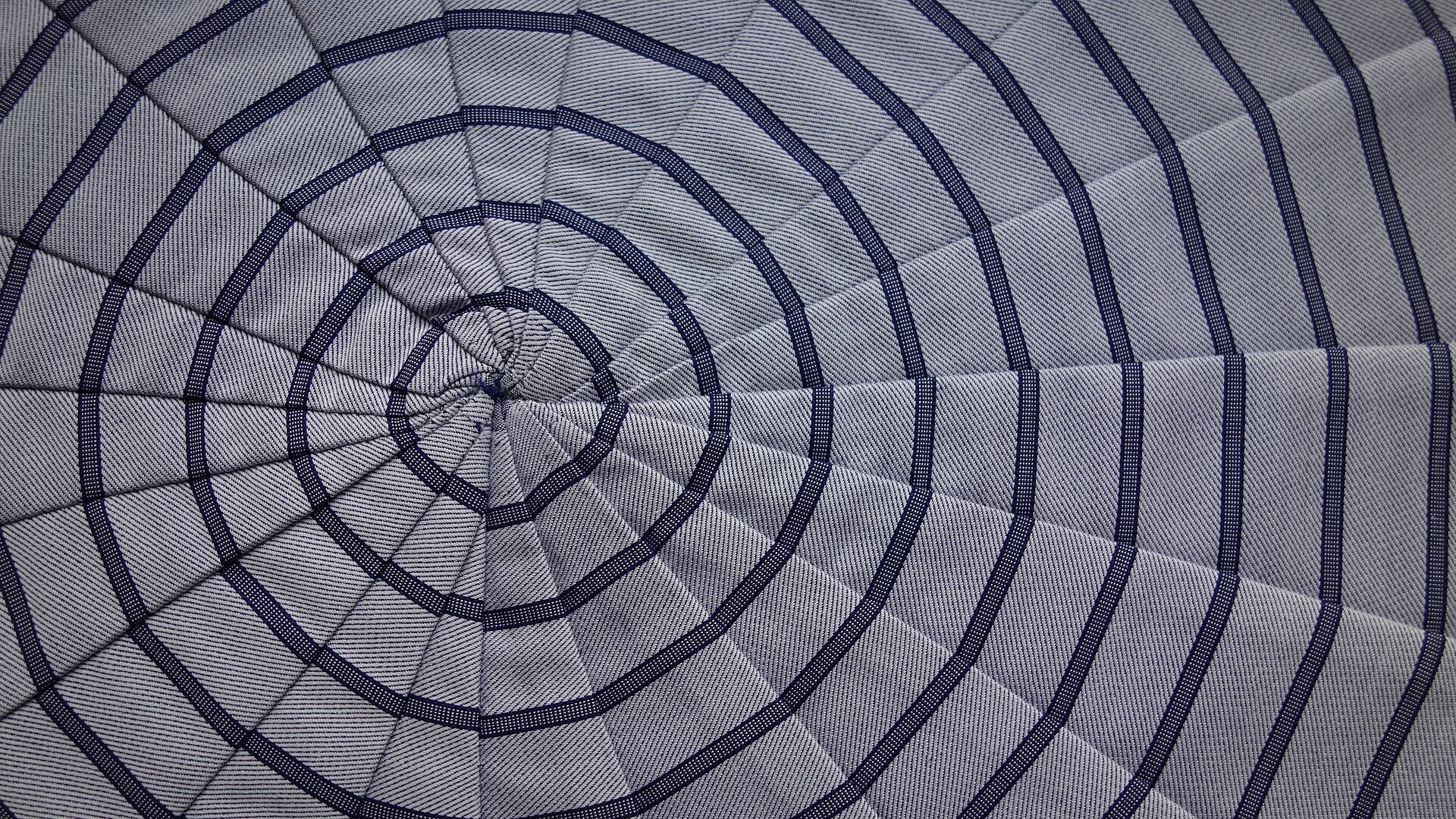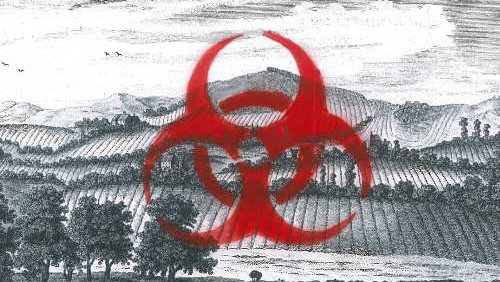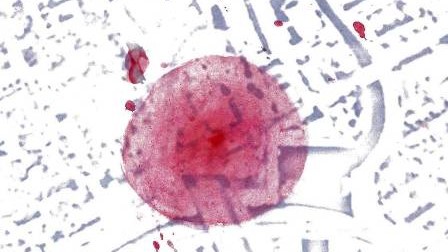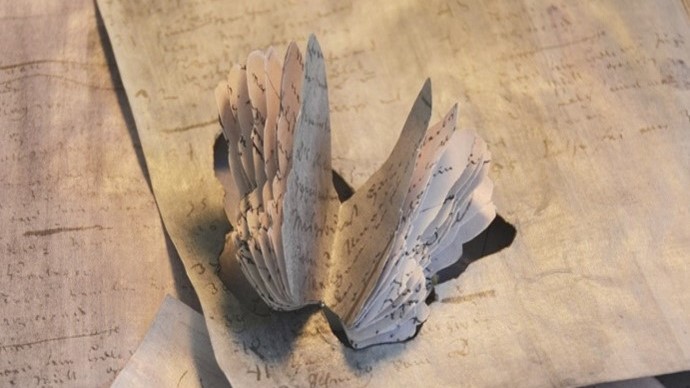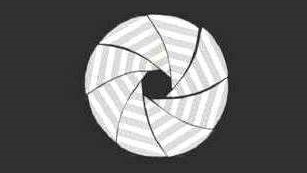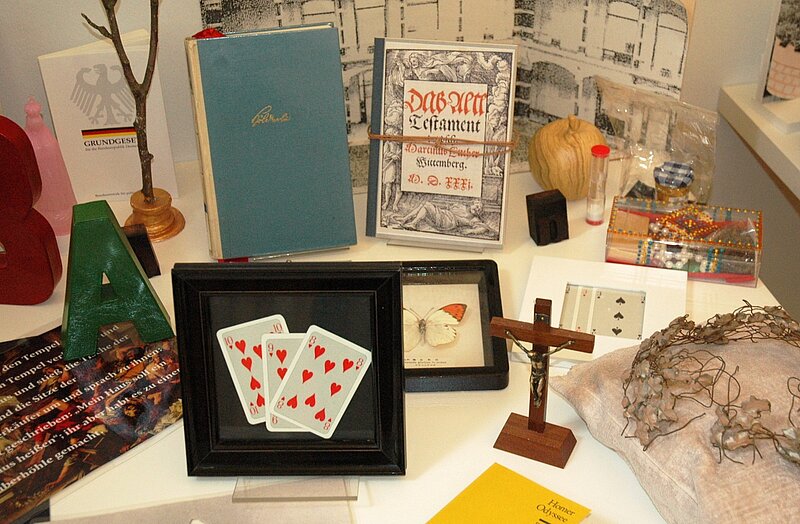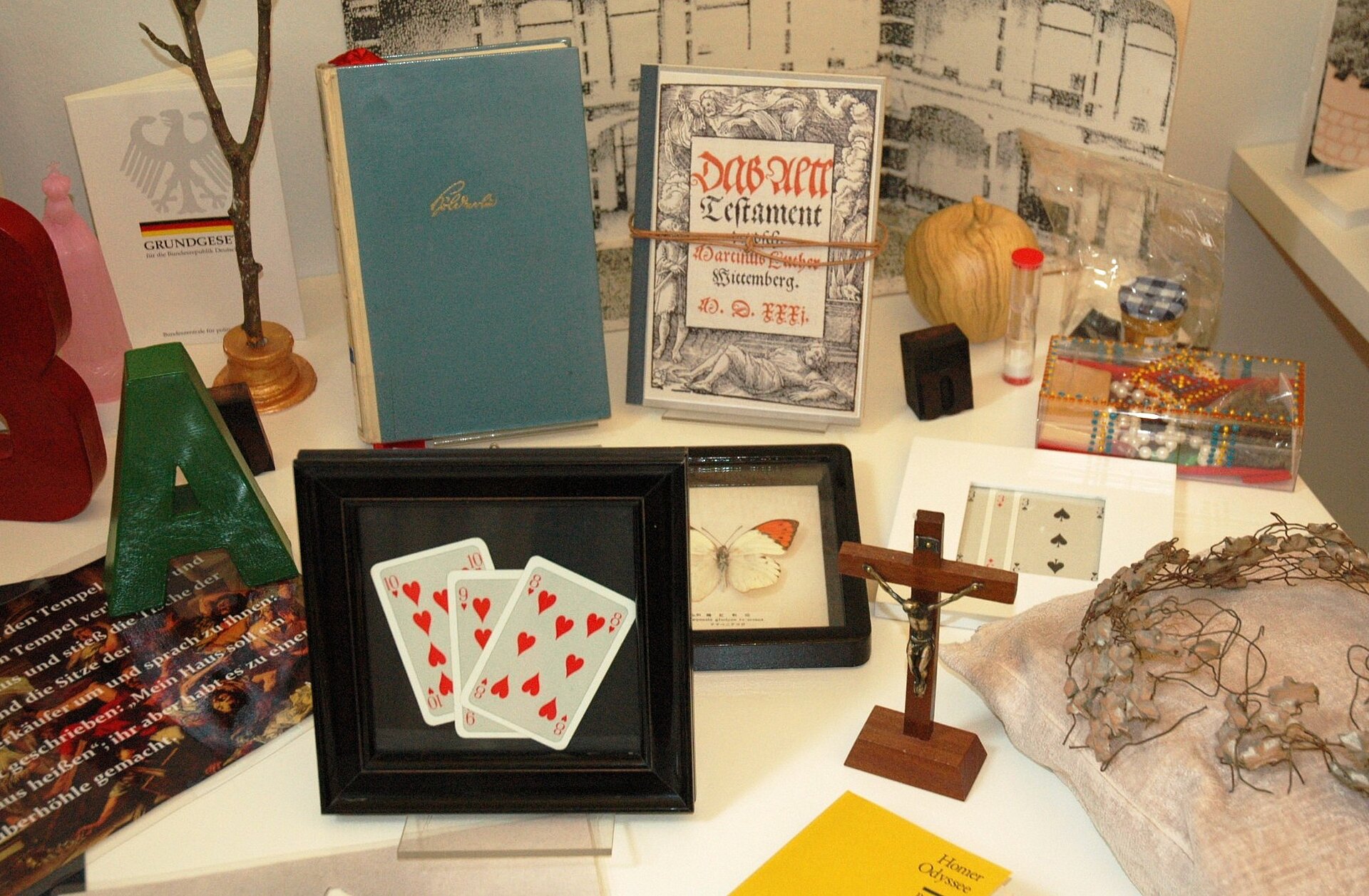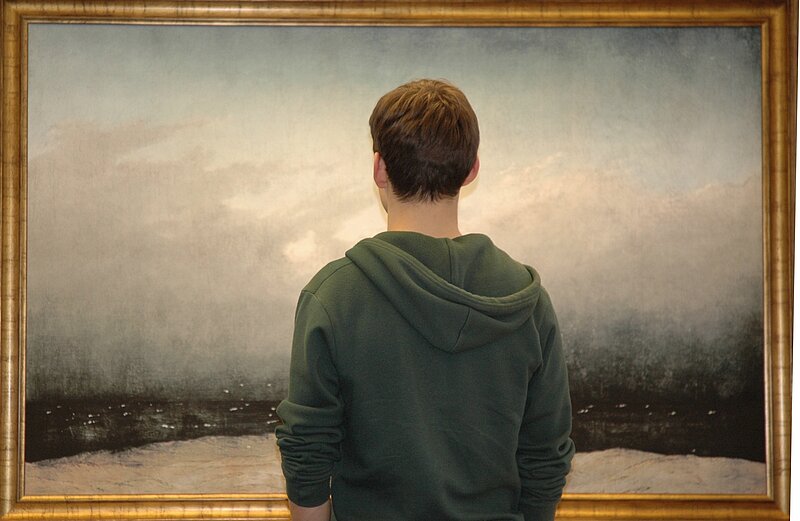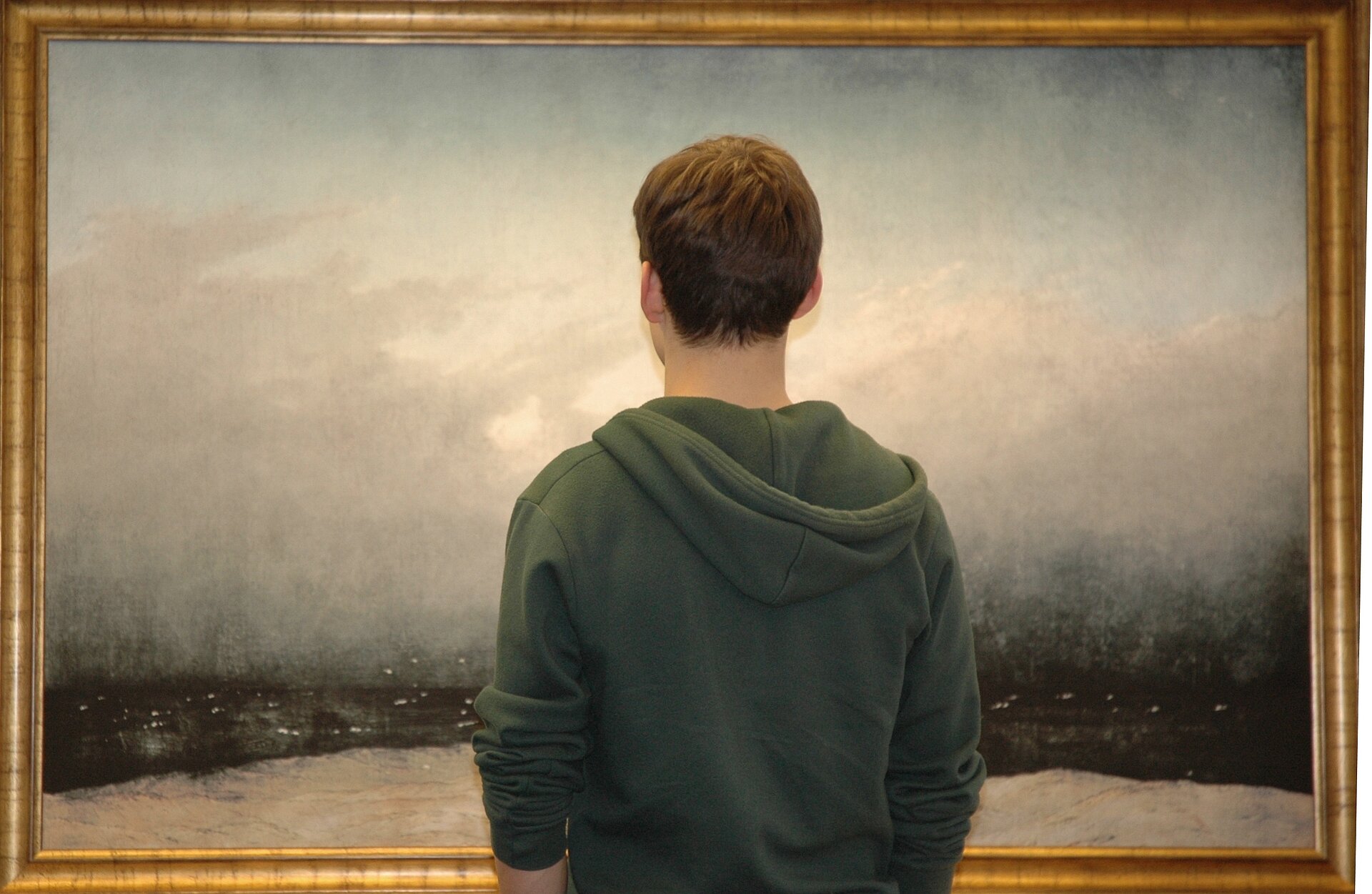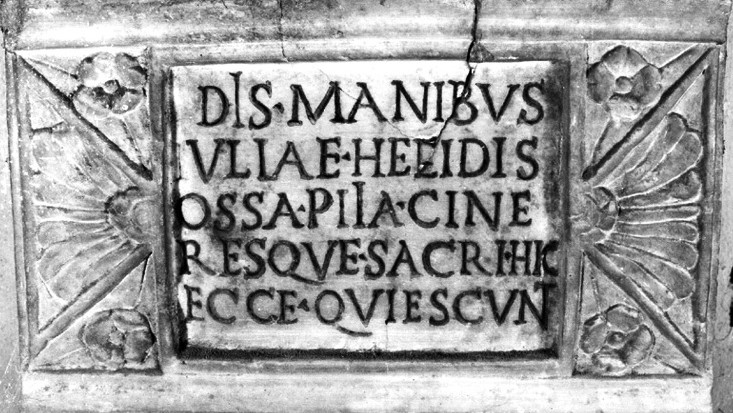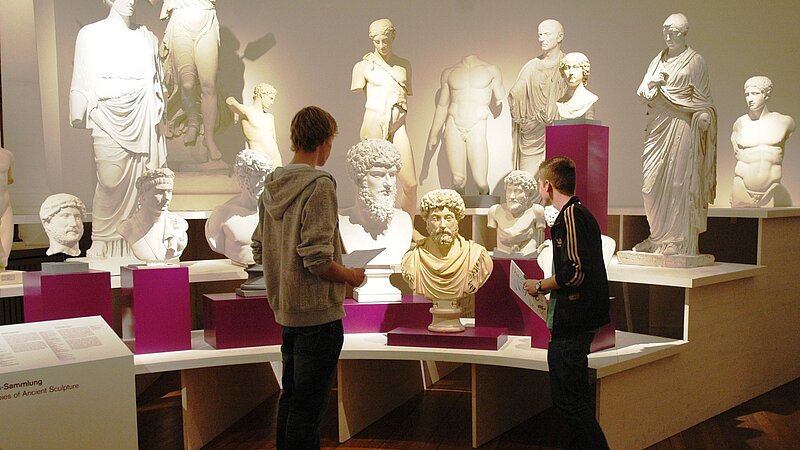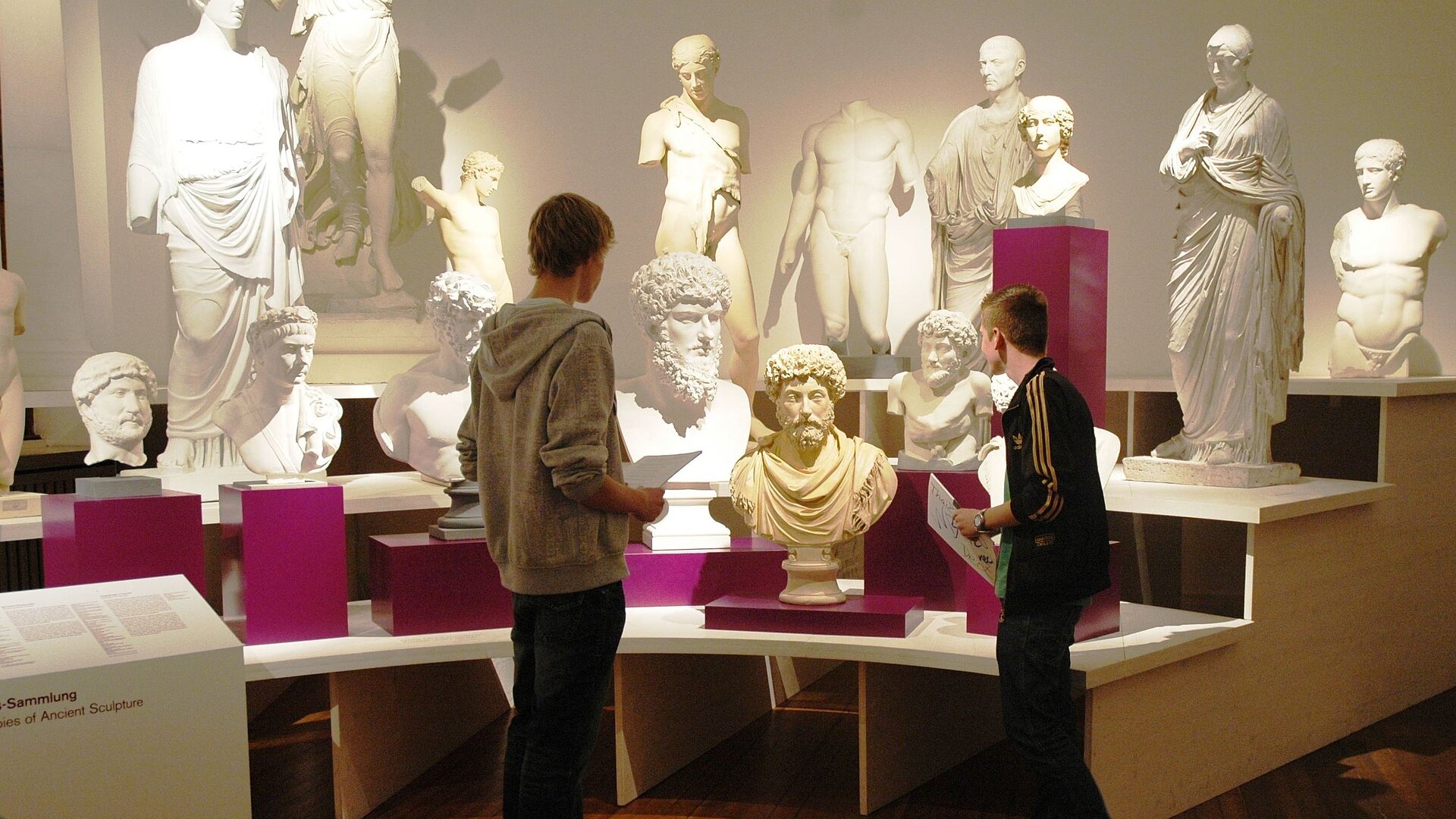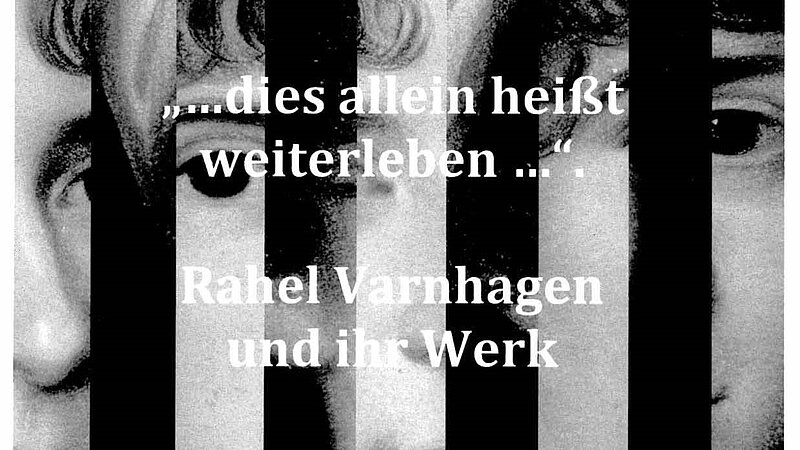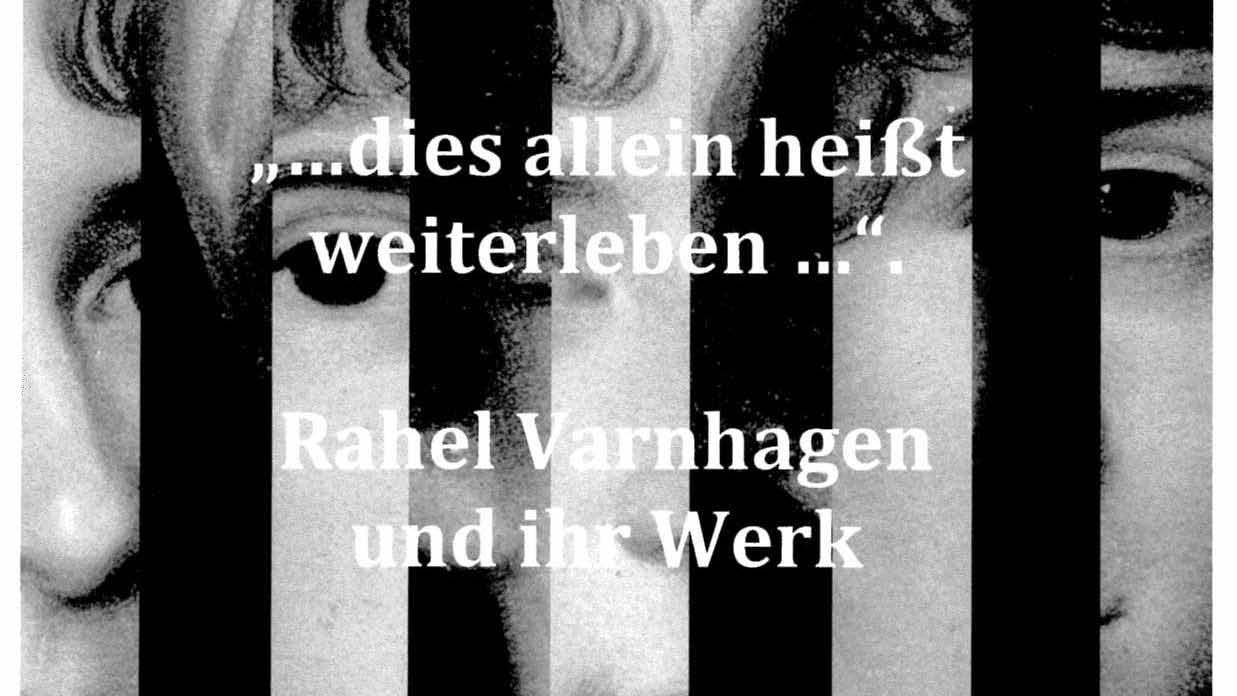Archive
300 years of Kant, 75 years of Grundgesetz. Two Series of Events on Artistic Freedom (Spring/Summer 2024)
23 May 2024 marked the 75th anniversary of the constitution of the Federal Republic of Germany coming into force. It also marked the date of article 5, paragraph 3 becoming law, which guarantees the freedom of art. Its concept was developed by Immanuel Kant, among others, at the end of the 18th century. The Humanities Lab used this shared anniversary as an opportunity to raise awareness of artistic freedom among those who benefit from this constitutional right. It aimed to foster the ability of our students to deal with art and politics in an advanced and knowledgeable way. The workshops explored this concept in two series, which were designed to complement each other. Our external co-operation partners were legal scholars from the European University Viadrina (Frankfurt/Oder) and from legal practice.
The Making of a Manifesto: 175 Years of the Manifesto of the Communist Party (Spring 2023)
In collaboration with The Complete Works of Marx and Engels
The Humanities Lab celebrated the anniversary with a reenactment of the text's genesis.Based on programmatic writings out of the circle of the Communist League, the participants staged the decision-making process during the two congresses of the League in London the year before. The intensive engagement with the arguments of Marx´ and Engels' internal rivals enabled the students to assess the innovative and truly world-altering potential of the Manifesto written by the two friends.
Mapping, Measuring, Making Comparisons: Nature (Poetry) in the Early 21st Century
In cooperation with the BBAW annual theme The Measurement of the Living
The scientific practices mentioned in the title were not as usual explored on natural phenomena, but on texts about natural phenomena - and thus alienated, stripped of their seeming self-evidence and made accessible to reflection. The starting point for the examinations was a collection of 35 contemporary German-language poems that was provided to the participants for their school lessons and had been cursorily read there.
"Das Allerheiligste für die Erwählten" or: How do you stage a classic?
Goethe's Iphigenie under Iffland's directorship (Spring 2022)
In cooperation with the Iffland Archive
Based on materials that were specially provided for download, the participating courses developed their own staging concepts for Goethe's drama in the micro-model of the paper theatre. In the process, the medium itself demanded concrete answers to questions that are usually discussed at best in abstract terms in German lessons: Utmost faithfulness to the text or updating director's theatre? A low threshold or exclusivity? Which cast for which role, which costumes and props, which stage design - and why? The interpretations of the groups were contrasted with the historical performing practice at the Royal National Theatre on Gendarmenmarkt, which is being scientifically researched and made accessible today at the Academy across the street.
Rewound: Electronic Music by Bernd Alois Zimmermann between Remix and Edition (Autumn 2021)
In cooperation with the Complete Edition of Bernd Alois Zimmermann and lev
With Tratto, his first purely electronic composition realized with a tape recorder, Zimmermann explored the possibility of putting pure tones into "beat" through layering, and of stretching, gathering, and reversing their temporal course. The fact that the piece has not been handed down as a score, but exclusively in form of the sound recording, poses challenges for edition studies, the reflection of which was the subject of the workshop. This was also made possible by practical, creative experimentation with pure tones - admittedly no longer by using tapes, but with the electronic media of our time.
Lab on Demand – Learning on Request (Spring 2021)
In the second year of the pandemic, the Student Lab’s spring season was replaced by a mobile offer. With the Lab on Demand, an attempt was made to provide a "propaedeutic delivery service" that complements the focal points of the A-level exams in advanced German courses. The registered courses were sent analogue learning packages with selected texts and other media and materials for individual work. The results of the preparation phase were then evaluated, discussed, and deepened a few days later in joint video conferences.
After nature? Poems from the Anthropocene (Spring 2020)
The concept of "nature", which has become increasingly questionable with modernity, seems to be finally obsolete in the Anthropocene, as scientists call the current epoch of the Earth's history shaped by humans. Can animals and plants, weather and landscape still be sung about in odes or sonnets in this time? Or do species extinction and climate crisis require new, more resistant forms of representation in order not to end up in moralising kitsch? The basis for the research was a corpus of selected lyrical texts from the past three decades.
The series, which was linked to the Academy’s annual theme “Naturgemälde”, could unfortunately not be realised due to the COVID 19 pandemic.
Infrequently Asked Questions: Humanities Lab for School Students on the "Ithaca" Chapter in Joyce' "Ulysses" (Autumn 2019)
In cooperation with Literaturhaus Berlin
The first series of the Humanities Lab addressing modern foreign languages was dedicated to the 17th chapter of this infamous century novel. It was written in a so-called catechism, a sequence of questions and answers. This technique was also used in the workshop and was contrasted with contemporary conventions of didactical communication. The season also included a teacher training session and a public presentation event with the best-known expert of the European research on Joyce, Fritz Senn.
The project was enabled by funding from the Embassy of Ireland.
Flyer (PDF, 2MB)
A Catechetical Interrogation. Fritz Senn in conversation with Yvonne Pauly. (MP3, 73MB)
Um-/bruch: Humanities Lab for School Students on Political Communication in Berlin during the March Revolution (Autumn 2018)
In cooperation with Stiftung Stadtmuseum Berlin
Leaflets constituted the decisive medium of communication in the day-to-do political climate of the March Revolution. Being spread by street vendors or attached to walls and fences, they left their mark in the urban space and enabled public communication at a fast pace, thereby provoking comparisons with contemporary social media. Aside from political pragmatism, the examination of the documents provided insights into their media characteristics, their conditions of production, their materiality, and aesthetics – an aspect which also finds its expression in the project’s ambiguous title.
Press release from Stiftung Stadtmuseum Berlin
Photo gallery from December 11, 2018 (PDF, 5MB)
"Form" and "Content" in Poetry. The Humanities Lab for School Students on an Interpretive Approach of teaching Literature (Spring 2018)
When students are being asked about how they analyze poems, they tend to describe a two-step method consisting of the analysis of the poem’s form and its content. The Humanities Lab for School Students traced back the premises of this binary system, which is based on the alleged aesthetics of content and its antique constriction between rhetoric and poetry. This approach was contrasted to the more form-centered view on poetry, which emerged in the 18th century, and particularly defined the language of poetry as autonomous, celebrating the disengagenment of language from external intents of representation. In this way, form was entirely separated from content. The project aimed at introducing students to the philological disciplines, encouraging them to critically deal with established methods of text analysis and opening their minds to modern concepts of poetry.
Ore legar populi: The Death of the Author is the Birth of the Reader. Humanities Lab for School Students on the Occasion of the Ovid Bimillenium (Autumn 2017)
With his formulation „ore legar populi“ („I shall be read by the mouth of the people”) Ovid proclaimed the immortality of his work.
On the occasion of the 2000th anniversary of his death, the Humanities Lab for School Students took Ovid at his word. The focus was on the fluidity of the spoken text in contrast to the written form, which is usually encountered in school lessons. The participants lent their voices to the poet and thus fulfilled Ovid’s prediction in a performative way.
In the lab, Ovid was confronted with the positions of poststructuralism and deconstruction in particular with the theories' main advocate Roland Barthes, whose essay "The Death of the Author" initiated a paradigm shift in the way texts are perceived.
Poster (PDF, 2MB)
"Whoever says ‘He’ must also ...". Humanities Lab for School Students on Language and Gender (Spring 2017)
Is it possible to develop a language that leaves behind the traditional dichotomy of the sexes? But also: is such a solution worth pursuing? These and related questions were the subject of the series of events that took place as part of the Academy's 2017 theme "Sprache". Its aim was to unravel the relevant terms sexus, genus and gender, which are often confused in everyday German language use, and to explore them scientifically. The external cooperation partner was linguist Antje Baumann, who works in language consulting at the Federal Ministry of Justice and Consumer Protection.
"Treat the beginning as harshly as possible." Uwe Johnson as Narrator. Humanities Lab for School Students on Edition Philology (Autumn 2016)
In cooperation with the Uwe Johnson research center
Uwe Johnson (1934-1984) wrote for an attentive audience; he desired a school which would arouse curiosity and stimulate an active reading attitude in young people. The series of workshops started there and intertwined the approach to Johnson's complex narrative technique with an introduction to questions and methods of edition science.
Using archive documents from the famous beginning of the novel "Mutmassungen über Jakob" (Speculations about Jakob, 1959), the students learned to compare different text witnesses and stages. In this way, the participants followed a complex process that precedes publication in media such as textbooks or Reclam booklets, which usually remains unknown. For the first time, part of the series took place at schools in Mecklenburg-Vorpommern.
Project page University of Rostock
"All made of 1 and 0": Humanities Lab for School Students on the History of the Binary System (Spring 2016)
In cooperation with Leibniz-Edition Berlin
In the jubilee year of Gottfried Wilhelm Leibniz - the 370th anniversary of the founder's birthday and the 300th anniversary of his death - the series of the spring season began with the dual system developed by him and traced the development of a concept that changed the world to the present day. Even beyond information technology, binary patterns shape our understanding of the world and our culture; numerous scientific disciplines from linguistics to biology are based on bivalent classification and descriptive methods. The activities in the workshop ranged from practical exercises over binary computing and binary logic, intelligent games, presentations, and reading texts to hands-on object work.
Textiles, Textures. Humanities Lab for School Students on the Methodology of Poetry Interpretation (Autumn 2015)
Participants in thgis series had the opportunity to discover one of Clemens Brentano's most impressive poems, which is today known as "Der Spinnerin Lied" (The Spinner's Song), with a procedure that contrasts the usual practice of German lessons: poetry synthesis. For this purpose, students were offered a selection of relevant literary research on metrics, rhyming scheme, stanzaic form, etc., which made it possible to reconstruct the "weaving pattern" of this text. Finally, the two-stranded tradition of the poem was examined, one as part of a letter and the other as a part of a tale. It thereby became apparent that a more recent approach to literary theory, such as the so-called intertextuality, which takes account of the openness of the literary process, is particularly fruitful for understanding Brentano's poetics.
And Peace in the Fields? Humanities Lab for School Students on the Debate about Green Genetic Engineering (Spring 2015)
In cooperation with the Interdisciplinary Working Group Gene Technology Report
In addition to the biology lessons at school, the series of events looked at the controversial subject from a cultural and sociological perspective. The students were able to become familiar with the topic by using an exemplary text corpus with an indicator-based approach. After an overview of the latest biotechnological techniques, the programme included among other points questions of legal regulation, the labelling of genetically modified organisms and problems of opinion research and control.
Berlin Europaplatz. Humanities Lab for School Students on the Exploration of Public Space (Spring 2014)
As part of the Academy's annual theme "Zukunftsort Europa" (Future Place Europe), the series of events adopted an idea by the French author Georges Perec from the 1970s and undertook the "attempt to capture a place in Berlin": by of art and by means of science. Over six days between May and July 2014, high school courses of various schools and subjects conducted performances and research on the geology, topography, botany and history of these " 8400 square meters of Germany " on the northern forecourt of Berlin's central station. A particular focus was on the interplay between "Law and Public Space", which was then further explored thorugh propaedeutic experimental games on Street Law, Planning Law, Data Protection Law and Constitutional Law.
Schreib-Leben. Invitation to Jean Paul's Text Workshop (Autumn 2013)
Accompanying programme to the exhibition "Dintenuniversum".
On the occasion of the poet's 250th birthday, the Academy and the Staatsbibliothek zu Berlin Preußischer Kulturbesitz organized the exhibition "Jean Paul: Dintenuniversum. Writing is Reality" in cooperation with the "Brandenburg Gate" Foundation. The exhibition was shown from 12 October to 29 December in the Max Liebermann Haus at Pariser Platz. The Student Lab offered a complementary program to this project. It focussed on Jean Paul's specific writing process and the creation of texts based on other texts which due to his extensive written legacy can be reconstructed more precisely than virtually any other author's works of the time.
The series was sponsored by the Senate Department for Education, Youth and Science.
Flyer (3 MB)
Film plus Music minus Film: Arnold Schönberg and the Cinematographic Music of the 1920s. Humanities Lab for School Students on Musicology (Spring 2013)
In cooperation with the Landesmusikrat Berlin, the Universität der Künste Berlin and the research projects "Complete Works of Arnold Schönberg" and "Complete Edition of Carl Maria von Weber"
How does the perception of moving images change if it is accompanied by sounds? This central question was addressed in the first musicology-oriented program hosted by the Student Lab. A wide range of works was offered from the earliest films of the Lumière brothers to the "Begleitungsmusik für eine Lichtspielszene" (Accompaniment to a Cinematographic Scene, 1929/30) by Arnold Schönberg, which of course no longer wants to be understood as a functional but as an autonomous work of art. Movie pianists were present to realize the suggestions developed by the students ad hoc.
Growth. Humanities Lab for School Students on Economic Theory (Autumn 2012)
In cooperation with the German Institute for Economic Research (DIW)
"Growth" is one of the buzzwords of current political discussions. The Student Lab has therefore attempted to explore the term economically and scientifically in the course of the 2012 autumn season: How long has this category existed in economic research - and why? How can growth be described mathematically, how can it be measured? Why must economy continue to grow in today's system? What would happen without growth? In classroom experiments, the participants discussed classical behavioral economic dilemmas and thus became themselves the subject of empirical economic research.
The series of events was sponsored by the Federal Ministry of Education and Research as part of the "2012 Year of Science - Future Project Earth".
Flyer (PDF, 2MB)
Meaningful Networks. Humanities Lab for School Students on Text-Picture Communication in the Middle Ages (Spring 2012)
In collaboration with the Corpus Vitrearum Medii Aevi and the research project on German texts of the Middle Ages
With the arrival of the lead glass windows of St. Marien in Frankfurt/Oder, which had been lost since World War II, the spectacular return of so-called 'Beutekunst' was celebrated for the first time in June 2002. Based on this famous case, the Student Lab offered a program reconstructing the church's image program with the pupils. The focus was on the phenomenon of typology, a reference system in which persons and events from the Old Testament are related to scenes from the life of Jesus. Beyond the transmission of theological and art-historical knowledge, this Student Lab pursued the goal of challenging participants’ commonly held perceptions and taking them into a world of perception and imagination based on comparisons and analogies which have become alien to us.
Conveyed Perceptions. Humanities Lab for School Students on the Study of Art by Heinrich von Kleist
(Autumn 2011)
On the occasion of the 200th anniversary of Heinrich von Kleist's death, the 2011 autumn season was dedicated to this somewhat unusual classic of German literature. The example of the famous essay "Empfindungen vor Friedrichs Seelandschaft" ("Impressions of Friedrich's Seascape"), which can be traced back to a longer article by Clemens Brentano and Achim von Arnim, was used to examine the romantic perception of nature and space as well as the fundamentals of literary authorship. The philological analysis of the discussed text was equally complemented by an art historical examination of the painting by Caspar David Friedrich, that inspired the essay, which is known today as "Mönch am Meer" (Monk by the Sea) : What is its tradition? How can we explain the enormous impact of the painting, which caused a scandal among his contemporaries?
The project's external cooperation partner was the Berlin art historian Matthias Hahn.
To the Dear Dead. Humanities Lab for School Students on Latin Epigraphy (Spring 2011)
In collaboration with the research project Corpus Inscriptionum Latinarum
The program was dedicated to one of the most prominent classes of epigraphic testimonies of grave inscriptions. Students of Latin were invited to discover these fascinating texts, which show expressions of ancient ideas about the afterlife, but also reveal a life culture of bygone times. People and careers, personalities and fates often emerge from them with great vividness. Using the concrete object as an example, the participants were given an introduction to the epigraphic craftwork: from the autopsy of the inscription carrier to the documentation of findings by sketches or paper rubbing to the production of the so-called Schede, a preliminary version of the text-critical edition. It became clear that epigraphy is an interdisciplinary field of research at its best, which relies as much on historical topography as on linguistics and palaeography.
Science in Verbs. Accompanying Program by the Humanities Lab for School Students to the Exhibition "WeltWissen" (Autumn 2010)
As part of the Berlin Year of Science 2010, the Student Lab offered a series of events for the central anniversary exhibition "WeltWissen. 300 Years of Science in Berlin" in the Martin-Gropius-Bau. The program referred to the rooms of the second part of the exhibition that were labelled with verbs describing science-related actions: "Experimenting", "Calculating", "Interpreting", "Visualizing" as well as "Collecting and Travelling". The program, which therefore bore the overall title "Science in Verbs", was oriented towards the history and theory of science. It opened the view for fundamental problems and questions of individual disciplines as well as of "science" in general: How have scientific concepts (e.g. genus and species) and methods of research (e.g. the experiment) developed? In addition to courses in the humanities and social sciences, for the first time, the programme also addressed artistic as well as scientific disciplines and thus almost all subjects of the school canon. The five workshop series were led by young academics from the Academy and other exhibition organisers.
The project was enabled by funding from the Ernst Schering Foundation.
Flyer (PDF, 2MB)
"...this alone means to live on." Humanities Lab for School Students on Rahel Varnhagen (Spring 2010)
In cooperation with the manuscript department of the Staatsbibliothek zu Berlin Preußischer Kulturbesitz
Who was Rahel Levin alias Rahel Robert alias Antonie Friederike Varnhagen von Ense (1771-1833)? Which circumstances shaped her life? What is her status as a social artist and literary figure? Questions like these were pursued by the workshop participants on the basis of original sources. In Rahel's case, the so-called Varnhagen Collection provides an extensive corpus that contains letters, books, memorabilia, and testimonies to everyday life. Some of the documents are now in the Staatsbibliothek zu Berlin Preußischer Kulturbesitz. In cooperation with the manuscript department of the Staatsbibliothek and with the support of the Akademienvorhaben Berliner Klassik as well as the Varnhagen Gesellschaft, access to these treasures was opened up and an introduction to the scientific handling of autographs was offered.
The realization of this Student Lab was supported by the Leo Baeck Program.

